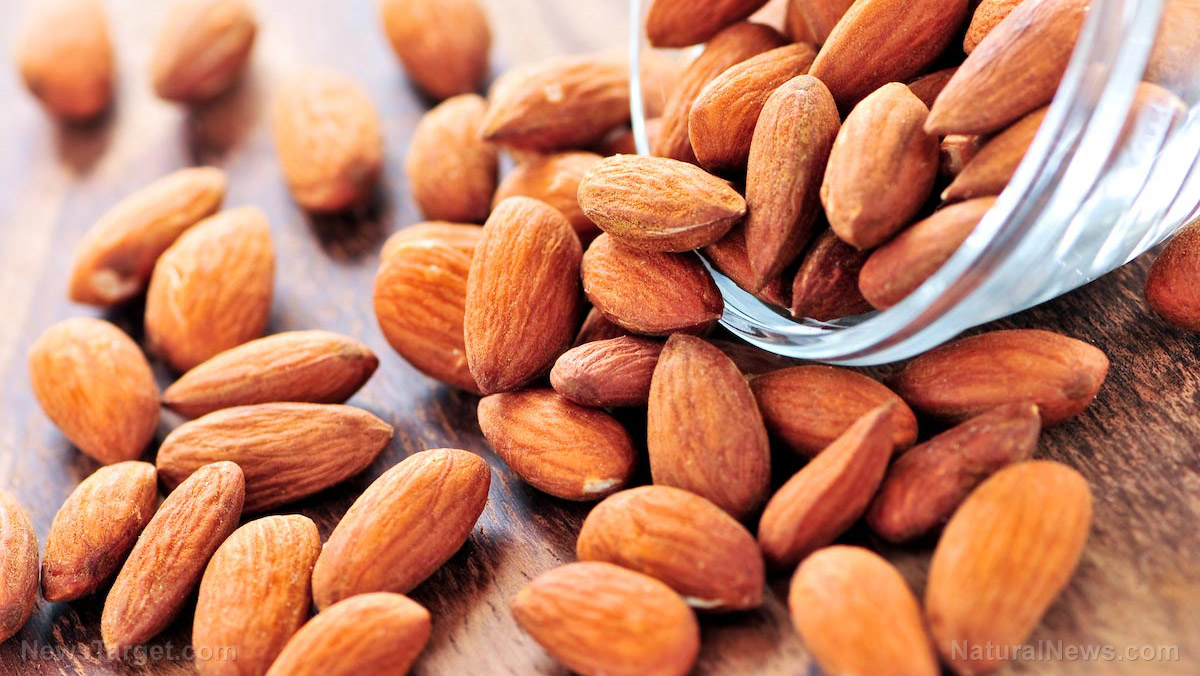 Parler
Parler Gab
Gab
Vitamin D, also called calciferol, is vital for everything from building strong bones and muscles to helping the immune system fight off illness, among other crucial functions. Maintaining adequate vitamin D is essential if you are at risk of diabetes. Vitamin D deficiency has been linked to insulin resistance,[iii] a key factor that marks the progression from prediabetes to an official Type 2 diagnosis.
A 2019 study reported that vitamin D deficiency was found in 70% of Type 2 diabetic patients, and that individuals with severe vitamin D deficiency were 39 times more likely to have a diagnosis of Type 2 diabetes.[iv] Studies further show that correcting this deficiency through strategic supplementation results in improved glucose tolerance and beta-cell function, a marker of improved insulin secretion.[v]
Overall glycemic outcomes were measured in two separate meta-analyses published in 2018, one of which reviewed 28 controlled clinical trials involving nearly 4,000 adults who were prediabetic, overweight or obese. Results showed that supplementation with vitamin D significantly improved glycemic measures and insulin sensitivity.[vi]
The other 2018 meta-analysis reviewed 37 studies and found that boosting vitamin D through strategic supplementation led to significant improvement in fasting blood glucose and improved insulin resistance in Type 2 diabetics.[vii] Vitamin D can be a safe part of a preventative strategy and may even help reduce inflammation associated with diabetes.[viii]
2. MagnesiumAnother nutrient that plays a key role in glucose metabolism is magnesium (Mg). Required by the pancreas for insulin production, being deficient in Mg is associated with increased risks for many diseases, including Type 2 diabetes.[ix] Conversely, having a higher dietary intake of magnesium is linked to lower diabetes rates in some studies.[x],[xi]
There is ample evidence showing the inverse association between magnesium intake and risk of developing diabetes. Studies link magnesium deficiency to insulin resistance in overweight prediabetic children,[xii] and intracellular Mg has been shown to play a key role in regulating insulin action.[xiii]
A 2016 meta-analysis found that treatment with magnesium reduced fasting blood glucose concentrations and improved insulin sensitivity in patients with diabetes and prediabetes.[xiv] Other studies show that Mg deficiency can worsen diabetes symptoms,[xv] including diabetic retinopathy, a degenerative eye disease that can lead to blindness.[xvi]
An estimated 61% of the U.S. population is deficient in magnesium,[xvii] creating increased risks for multiple diseases, including Type 2 diabetes. Good food sources of Mg include leafy green vegetables, whole grains, beans and nuts. Supplemental guidelines vary by age, gender, whether you're pregnant or breastfeeding, and so on, but the general recommended levels are between 270 and 400 milligrams (mg) per day for adults.[xviii]
3. ProbioticsThe importance of maintaining a healthy gut environment is now well-known to science. The link between probiotics and diabetes is less understood, but a growing body of clinical evidence shows that a healthy gut can help protect against diabetes and its effects.
A meta-analysis published in 2019 showed that probiotic supplementation lessened oxidative stress caused by Type 2 diabetes.[xix] Another recent study found that supplementation with a high-quality probiotic was associated with significant improvement in blood sugar and fasting insulin levels in Type 2 diabetic patients.[xx] Further evidence gleaned via meta-analysis of 12 randomized, controlled trials showed that probiotics significantly reduce fasting blood sugar and serum insulin concentrations, as well as lower total cholesterol.[xxi]
While many types of bacteria can be considered probiotic, two strains commonly found in stores are Lactobacillus and Bifidobacterium. Look for guaranteed live cultures and consider adding fermented foods like yogurt, kefir, kombucha and kimchi to your daily meal plans.
Remember, habits like smoking, consuming alcohol and eating processed foods create a toxic gut environment where healthy bacterial strains struggle to enculturate. Choosing a whole-food diet that's rich in fruits, vegetables and naturally fermented foods will create an ideal gut environment for healthy bacteria to thrive, all while helping to stabilize your blood sugar.
4. CurcuminCurcumin, one of the most researched plant polyphenols, has powerful antioxidant properties that contribute to its healing power. It can be a potent ally in disease prevention, including Type 2 diabetes, thanks to its ability to suppress rising blood sugar.
A Japanese study found that curcuminoids, an active agent in turmeric imbuing its bright yellow color, kept blood sugar stable in Type 2 diabetic mice.[xxii] A separate study from the journal Diabetes Care recommended curcumin supplementation as part of a preventative strategy for prediabetics wishing to reverse an impending diagnosis.[xxiii] Other research indicates that curcumin's potential as a pretreatment for diabetes in at-risk individuals may be due to its ability to regulate and moderate cellular signaling to improve the body's responses to glucose and insulin.[xxiv]
A definitive 2019 study found via a meta-analysis of clinical and preclinical trials that up to 12 grams per day of curcumin are safe, tolerable and nontoxic, with trials prescribing 250 milligrams per day for up to nine months, to good effect.[xxv] Researchers acknowledged that other studies have shown the beneficial effects of curcumin in Asian prediabetic and Type 2 diabetic populations, where turmeric is heavily used as a dietary spice.[xxvi] So go ahead -- spice it up! Your blood sugar will thank you for it.
5. BerberineBerberine is a natural supplement with an impressive resume. Berberine has been clinically shown to help regulate blood sugar, cholesterol and triglyceride levels,[xxvii] properties of significant value to diabetic and prediabetic individuals. These benefits will come as no surprise to Chinese herbalists, where berberine has been used to treat diabetes for over 1,400 years.
An alkaloid bioactive compound, berberine is a botanical extract from plants and shrubs in the Berberis family. As a supplement, berberine has been shown to regulate glucose and fat metabolism in both in vitro and in vivo studies.[xxviii] Berberine's protective effect for diabetes works by increasing insulin expression and antioxidant activity that helps healthy beta cells regenerate, among other beneficial effects.[xxix]
6. Fasting / Caloric RestrictionIntermittent fasting is a term that has been trending, thanks to a growing scientific understanding of the benefits of strategic caloric restriction. Defined loosely as going without food or drink for an extended period and consuming all calories within a limited time span, fasting frees the body's energy for other important tasks, like mental focus and carrying out detoxification processes.
A typical 16/8 fasting cycle would have you restricting calories for 16 hours each day and consuming normal calories within an eight-hour window. According to Johns Hopkins University neuroscientist Mark Mattson, Ph.D., who has studied intermittent fasting for 25 years, the human body has evolved to go without food for much longer periods of time than most modern people go between meals.[xxx] By giving your digestive processes a break, your body can shift resources to protecting itself against chronic diseases, like Type 2 diabetes, heart disease, inflammatory bowel disease and many cancers.[xxxi]
Studies on intermittent fasting have shown that caloric restriction improves insulin response in obese men[xxxii] and has beneficial effects on health markers in individuals with Type 2 diabetes.[xxxiii]
7. Exercise / YogaPut simply, exercise does a body good. But it doesn't stop at your body; exercise is clinically shown to improve your mood, sleep and energy, boost self-esteem and reduce stress[xxxiv] -- the list of benefits goes on and on. Regular exercise is also beneficial to people with Type 2 diabetes and those who are at risk of becoming diabetic, and it may be a key modality for maintaining healthy blood sugar levels.
People who engaged in active commuting, defined as cycling or walking to work for all or part of a commute, significantly lowered risk of all-cause mortality and had a 30% reduced risk of developing diabetes.[xxxv] If you can't cycle to work, taking a brisk, 30-minute walk, five days each week, meets physical activity guidelines for adults and may reduce your risk of developing Type 2 diabetes by as much as 58%.[xxxvi]
Yoga has thousands of years of history supporting its many virtues, and thanks to modern research, yoga's documented benefits include supporting healthy blood sugar levels. A 2019 study on yoga as a prediabetic intervention found that blood glucose levels were significantly reduced by practicing yoga.[xxxvii] Other observed benefits of yoga practice were decreased stress levels and no escalation of fatty liver,[xxxviii] a condition often seen in prediabetic individuals.
To learn more ways to control your blood sugar naturally, consult GreenMedInfo.com, the world's most widely referenced, evidence-based natural medical resource. Read more at: GreenMedInfo.comGoldenseal: The golden healer of North America
By Ava Grace // Share
Rosemary protects against macular degeneration
By News Editors // Share
Daily almond snack reduces cardiovascular risks for metabolic syndrome patients, study reveals
By Willow Tohi // Share
Your HVAC system can harbor mold: How to fight back
By Lance D Johnson // Share
Empowering children’s health naturally: “Aromatherapy for the Healthy Child” by Valerie Ann Worwood
By Belle Carter // Share
Popsicles with a purpose: DIY electrolyte ice treats for hot days
By HRS Editors // Share
Governments continue to obscure COVID-19 vaccine data amid rising concerns over excess deaths
By patricklewis // Share
Tech giant Microsoft backs EXTINCTION with its support of carbon capture programs
By ramontomeydw // Share
Germany to resume arms exports to Israel despite repeated ceasefire violations
By isabelle // Share










